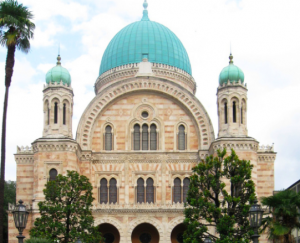NEWS “The hope is to reopen by Shavuot”
“When Italy reopens, spiritual needs are also to be taken into account. This is why I agree with what Rabbi Riccardo Di Segni said on this point.” According to Chief Rabbi of Florence, Gadi Piperno, it is now time to reopen synagogues for worship.
“It is vital to ensure social distancing. All the rules to be set out will obviously be observed. Here in Florence, also thanks to a large-sized temple, we’re thinking about occupying every third seat, every other row.” As Rabbi Piperno said, the Council was considering various options: from measuring the temperature at the entrance to the complex management of people going in and out of the synagogue. “However, our wide spaces will facilitate our work,” he underlined.
Chief Rabbi of Turin, Ariel Di Porto, recommended caution, at least for his community. “I think we’ll have to sail in some uncharted waters. In Piedmont, the epidemiological picture is still an agonizing one,” he highlighted. He himself has some reservations.
“Over the past months, Italian rabbis have shown a great sense of responsibility. The ambition to restart at least by Shavuot is righteous and shared. On this issue, ARI (Italian Rabbinical Assembly) will release a statement. Still, I look at my community and say we’re right to be realistic, in order not to create false expectations. We’ll need time, more than others. Things won’t be the same, at least as long as there is this virus. Not even in synagogues.”
Chief Rabbi of Bologna, Alberto Sermoneta, said he was “looking forward to it”. Over the past weeks, he has been very active in classes and remote speeches, often held inside the synagogue.
“There’s a real need to reoccupy physical spaces, to feel part of a community which is not only virtual. Our target could be the Sabbath before Shavuot. Of course, with all proper precautions.” He does not see any particular problems, at least for the main synagogue. “On the other hand, it is too early” for the small hall, which is located in the same building.
Among the measures regarded as essential are the introduction of temperature checks and guardians who are able to manage people flows and indicate where people should sit.
Translated by Mattia Stefani and revised by Claudia Azzalini, both students at the Advanced School of Modern Languages for Interpreting and Translation of Trieste University and interns at the newspaper office of the Union of the Italian Jewish Communities.

